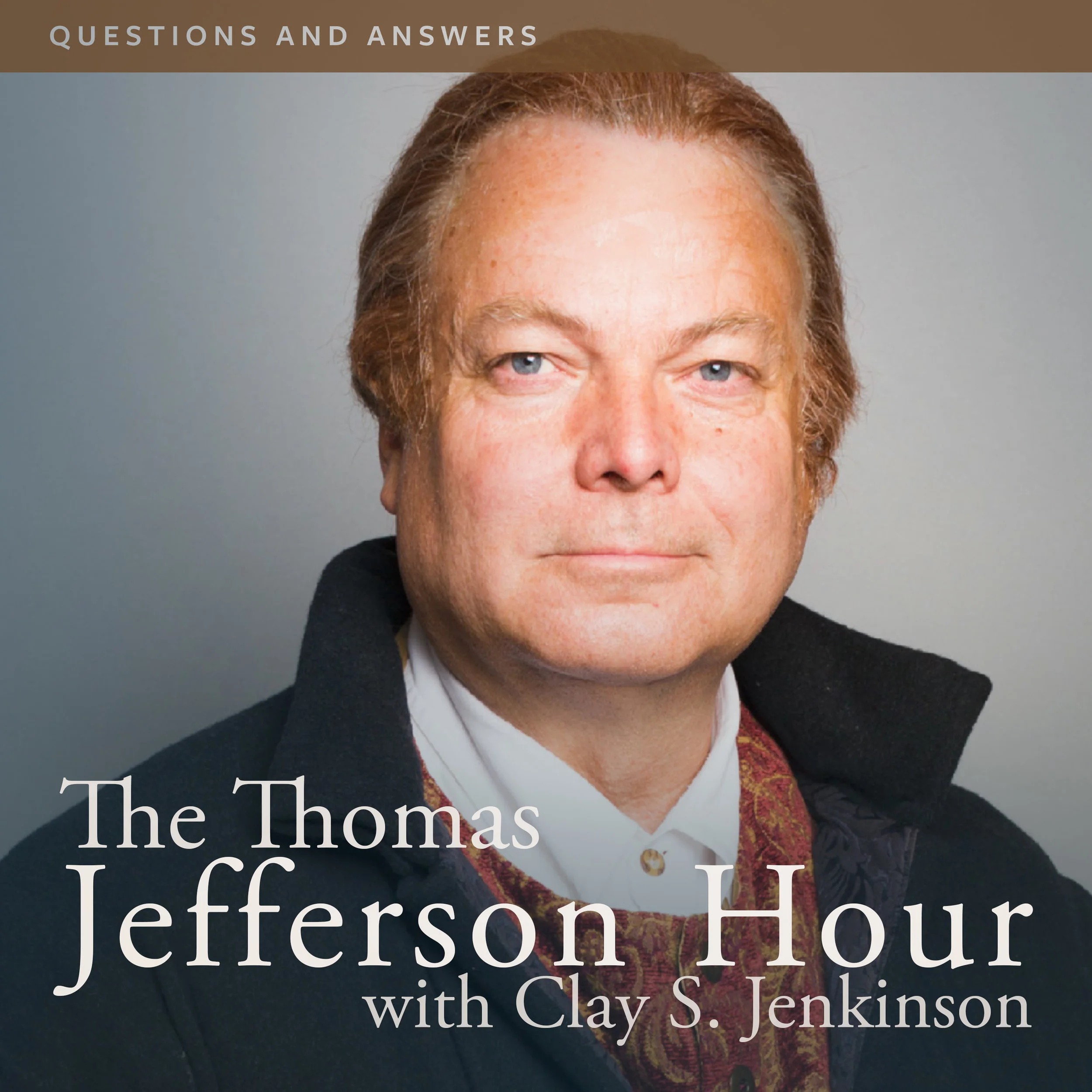Clay Jenkinson welcomes back David Nicandri for a discussion about Sir Ernest Henry Shackleton, the explorer who led three British expeditions to the Antarctic. They also talk about Thomas Jefferson's influence on exploration. Nicandri is the author of River of Promise: Lewis and Clark on the Columbia and Captain Cook Rediscovered: Voyaging to the Icy Latitudes.
#1452 Lewis and Clark Extras
Clay Jenkinson recently lead a conference for the Smithsonian that introduced attendees to the Lewis and Clark expedition. The lecture was brimming with questions, so many that there was not enough time to answer all of them. This week, we try to finish that task and answer those extra questions about Lewis and Clark.
#1420 HannaLore Hein
We present a fascinating conversation with HannaLore Hein, who in 2019 became Idaho’s first woman state historian. Clay Jenkinson and Hein discuss her duties as a state historian and talk about an author from Idaho, Vardis Fisher. His first novel, Mountain Men, was used as the basis for the 1972 film Jeremiah Johnson. His book, Suicide or Murder: The Strange Death of Meriwether Lewis, published in 1962, is regarded as starting the longstanding controversy over the death of Meriwether Lewis.
#1394 Day Books and Journals
This week on the Jefferson hour, a conversation with David Nicandri about his new book “Lewis and Clark Reframed: Examining Ties to Cook, Vancouver and McKenzie”, and the importance of reading not only the journals left, but also their “day books”. In writing the book, Nicandri speaks about his goal to not just get get into explorers shoes, but to get “into their heads’.
#1351 Eight Objects
And So Once More to the River
Drifting down the river in the afternoon, gazing up at the blue blue sky, slipping past golden eagles as if they were sparrows or wrens, examining the famous White Cliffs that Lewis said had the feeling of “scenes of visionary enchantment,” and at times just pulling the paddles into the canoe to feel the gentle but inexorable tug of the continent, this too is paradise on earth.
#1348 Tulip Poplars
We discuss the 50th Anniversary of the Apollo moon landing and then are joined by two special guests. Jeff Huss of the Huss & Dalton Guitar Company in Staunton, Virginia talks about a very special project: the Jefferson Edition 00-SP Custom guitar which is crafted in part with wood from Monticello. Later in the program, Monticello’s head gardener Pat Brodowski tells us about the trees the wood came from and why they had to be cut down.
Travel
The Courage to Face the Truth
#1339 Questions and Answers
"Those forty books made a difference in his life, because he grew up in a house where there were books and book culture."
— Clay S. Jenkinson
This week on The Thomas Jefferson Hour, we answer listener questions including a query from a listener in Ireland asking about Jefferson’s thoughts on the Irish rebellion and constitution, Jefferson’s involvement in providing alcohol to troops, suggestions for a Jefferson library for children, and Jefferson’s advice for Americans traveling in Europe.
#1334 Benjamin Rush with Stephen Fried
"He and Jefferson talked about everything."
— Stephen Fried
Benjamin Rush was a physician, politician, social reformer, humanitarian, educator, and a signer of the U.S. Declaration of Independence. Rush was a leader of the American Enlightenment and an enthusiastic supporter of the American Revolution. Born the son of a Philadelphia blacksmith, Rush touched virtually every page in the story of the nation’s founding. It was Rush who was responsible for the late-in-life reconciliation between John Adams and Thomas Jefferson. This week we speak with the author Stephen Fried about his new book, Rush: Revolution, Madness, and Benjamin Rush, the Visionary Doctor Who Became a Founding Father.
#1328 Constitutional Correspondence
Happy New Year, Everyone
Other Explorations of the West
Traveling West
"I would have been able to produce an account of that tour — and I mean no self-aggrandizement in saying this, but just from the sheer discipline of writing every day at great length — would have been one of the classics of the literature of exploration."
— Clay S. Jenkinson portraying Thomas Jefferson
#1295 Too Né
"Too Né's data wound up in the journals and all of it is on the map, and the map deepens the journals, and the journals deepen the map."
— Clay S. Jenkinson
This week on the Thomas Jefferson Hour, we feature an extended conversation about the recently discovered map from the Lewis and Clark Expedition drawn by an Indigenous guide named Too Né. The map was found in the Bibliothèque nationale de France, and it's the subject of an entire issue of the Lewis and Clark Trail Heritage Foundation’s journal, We Proceeded On.
























